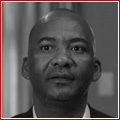Protecting African spirituality from stigmatisation: Reflections on the ongoing enquiry by the judicial conduct tribunal into Judge Nomonde Mngqibisa-Thusi’s conduct
Posted: 23 May, 2024 Filed under: Kodisang Bokaba, Konanani Happy Raligilia, Mametlwe Sebei | Tags: African jurisprudence, African spirituality, alleged misconduct, Bill of Rights, culture, Gogo Aubrey Matshiqi, indigenous African people, Judicial Conduct Tribunal, judicial responsibilities, Nomonde Mngqibisa-Thusi, physical isolation, right to religion, Universal Declaration of Human Rights Leave a comment |
Author: Konanani Raligilia Senior Lecturer, Department of Jurisprudence, UNISA |
 |
Author: Kodisang Bokaba Senior Lecturer, Department of Jurisprudence, UNISA |
 |
Author: Mametlwe Sebei Contract Lecturer, UNISA |
The question of African spirituality came into the spotlight at the Judicial Conduct Tribunal (Tribunal) into Judge Nomonde Mngqibisa-Thusi’s alleged misconduct for her failure to hand down over 20 judgments due to, among other factors, African spirituality. The Tribunal was held in-camera primarily because Judge Mngqibisa-Thusi was battling with health and personal issues. One of her witnesses was traditional healer, Gogo Aubrey Matshiqi, who testified that the “question of African spirituality must be put on the judicial agenda.” Indeed, African spirituality should not be viewed in isolation from the Constitution. The same Constitution makes provision for the right to religion, belief, and opinion in section 15(1) and to the enjoyment of everyone’s culture, practise their religion and use their language under section 31(1)(a) of the Bill of Rights respectively.
In view of Gogo Matshiqi’s submission, we need to firstly examine whether a valid defence can be raised in the context of the Constitution. In doing so, we need to ask ourselves whether a person experiencing a spiritual calling can execute any other task or work during his/her spiritual journey. Judge President, Danstan Mlambo, who is the administrative head of Gauteng High Court Division testified in the hearing that it pained him that Judge Mngqibisa-Thusi did not inform him of the challenges she was experiencing. He further indicated that as an African, he was going to understand, had she approached him. As the administrative head of the Gauteng High Court Division, Judge President Mlambo has the duty to provide effective leadership to the division to ensure that judges in the division perform their judicial responsibilities diligently and effectively. The judicial responsibilities include delivery of judgements by the judges and failure to do so timeously may be tantamount to misconduct.
Section 177(3) of the Constitution empowers the President of the Republic of South Africa to suspend a judge on the advice of the Judicial Service Commission. In the same breath, we ought to be mindful of the fact that nobody in South Africa (except essential workers) is expected to work during significant religious holidays such as Good Friday and Christmas day. Perhaps one of the solutions should be for African spirituality community to lobby for similar religious holidays such as Ancestors Day. Secondly, we need to explore whether African spirituality offers a valid defence where one is undergoing spiritual training which includes physical isolation and relatively limited interaction with the outside world. It is important to note that the Constitution offers both individual and collective rights. In this context, the right to religion is an individual right that should be exercised by a particular individual and that is why the employer has the duty and obligation to protect this right. Furthermore, the right to religion is an inalienable right which is guaranteed even in the Universal Declaration of Human Rights as well as other international instruments and protocols.

In our view, the Tribunal needs to take into account the element of isolation and limited interaction required by African spirituality for individuals undergoing spiritual training as alluded to by Judge Mngqibisa-Thusi and supported by the evidence of Gogo Matshiqi, in its decision-making. Third and final point is the transformation of the mindset in the legal jurisprudence and practice. In our view, the Constitution recognises the duty to transform the legal profession. This duty does not only mean there should be transformation of the personnel, but it also requires the mindset shift and change from Roman-Dutch Law to include African jurisprudence, African spirituality, and the realities of African people in the context of the law. So far, how we interpret, translate, and implement the law negates and isolates issues of African spirituality, African law, and its customs. This is exactly why most people who preside over issues of African spirituality often want to find reference where African customs and law are not recognised within Roman-Dutch law jurisprudence. However, one has to emphasise a point that Customary Law do not negates African spirituality in its application. Inquisitively, what is a custom? Ideally, custom impliedly mean that it is a continuous practice overtime by a particular group of people. At the same time, African spirituality is a belief system that includes customs and tradition of a particular set of indigenous African people as well. Therefore, the implementation of Customary Law as outlined in section 39(2) of the Constitution in the bill of rights ought to take into consideration the spiritual component of customs and its people.
Consequently, if the Tribunal’s point of departure in this matter is Roman-Dutch law, then we may not be able to arrive at the conclusion that says we can recognise African spiritual calling as a valid defence, as was advanced by Judge Mngqibisa-Thusi for her failure to deliver judgements. But if we can move from a blind base argument that says Roman-Dutch law is on the same footing with African Law, then that will provide us with the eyes and lenses to see that matters of African spirituality cannot be separated from matters of the law as African spirituality is often an integral part of African customs. Having said that, issues raised by Judge Mngqibisa-Thusi should be recognised as a valid defence. In this regard, the Constitution makes specific reference to Customary Law, which if often influenced by African spirituality and as such the presiding officer cannot entirely divorce African spirituality from customary law. Therefore, if one is observing this Tribunal from the point of view of Customary Law or African Legal Jurisprudence and looking at the African spirituality defense, such person may arrive at the point that Judge Mngqibisa-Thusi’s defense has basis, and it must be protected or respected by those who are presiding over the forum. In other words, judges should move from a pedestal that says the law is only Roman-Dutch law. Our judges ought to be transformative in their view, nature, and recognition of customary law.
The issue of stigmatisation of African spirituality is another issue which featured in the Tribunal. According to Franny Rabkin of the Sunday Times, Judge Mngqibisa-Thusi testified at length about how she internalised stigmatisation, shame and self-isolation associated with African spirituality. Ideally, this form of stigmatisation emanates from lack of knowledge, understanding, and negation of one’s belief system. Furthermore, the stigma around African spirituality goes hand in glove with religious intolerance emanating from colonialism, that denigrates African spirituality. For instance, a view that says African spirituality cannot form part of the legal jurisprudence often leads to negation of these practices despite customary law been recognised in the Constitution. That is not to say that every practice of African spirituality would amount to customary law, but rather an acknowledgement that there are significant interconnections between African spirituality and customary law, which needs to be recognised. African spirituality should be embraced in our communities as one of the fundamental tenets of the protection of religious freedom in our Bill of Rights. However, the right of religion is not absolute, and it may be limited in terms of section 36(1) if it is in conflict with the fundamental objectives of the bill of rights. Against this background, if African spirituality is able to withstand the test of the limitation clause in the Constitution, such practice should be protected by everyone, including the judges. In the end, we believe that the stigmatisation of African spirituality in our communities is founded on the colonial influence that demonises African institutions and practices as been devoid of civility.
Since the hearing was held in-camera, it is important to note that our comments do not reflect adequately on the facts or merits of the case before the Tribunal. Our aim is to draw attention to the need not to trivialise the essence of African spirituality in the lives of many people in South Africa and therefore the need to accord it the necessary recognition as part of the right to freedom of religion guaranteed in the bill of rights.
About the Authors
Konanani Raligilia is a Senior Lecturer in the Department of Jurisprudence and Project Leader of Medical Law and Biotechnology Flagship at UNISA. He holds LLB (Univen), LLM Labour Law (University of Limpopo), and LLM International Law (University of Pretoria). His research interest covers employment law, human rights, and public international law.
Kodisang Bokaba is a Lecturer in the Department of Jurisprudence and member of Medical Law and Biotechnology Flagship at UNISA. He holds LLB (UNISA), and he is currently an LLM Labour Law candidate (UNISA). His research interest covers legal philosophy and employment law.
Mametlwe Sebei is a Contract Lecturer in the Department of Jurisprudence and member of Medical Law and Biotechnology Flagship at UNISA. He holds BA (Law) – University of Pretoria, LLB (UNISA) and Masters in Sociology (Global and Labour Studies) – Wits University. His research interest covers legal philosophy and employment law.
